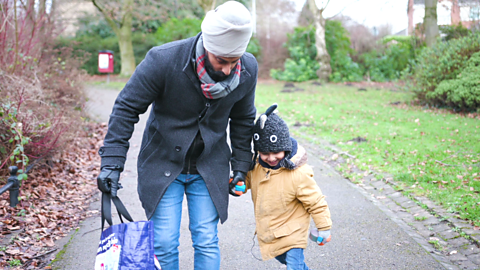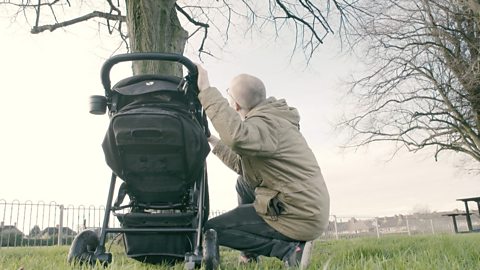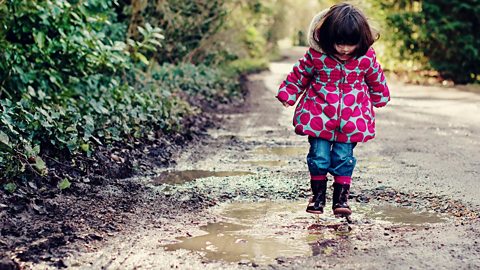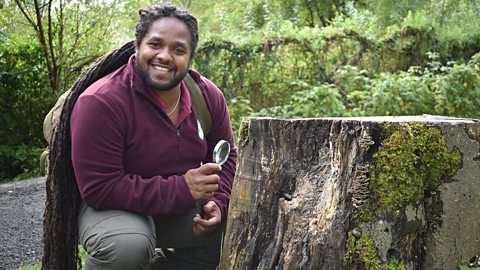
Hamza Yassin is a wildlife cameraman and better known to CBeebies viewers as Ranger Hamza. He is passionate about fostering a love of nature and the planet in children and presents Letãs Go For A Walk, where he takes a group of budding young ramblers on outdoor adventures.
ãIt was Sir David Attenborough who sparked this love in me and if I can do the same to just one child watching my programme, then Iãll be happy.
If you give them a chance to fall in love with mother nature, they will make this world a better place.
We caught up with Hamza last summer to get his top tips for outdoor fun with your little ones, wherever you happen to live.

Involve children from the outset
You donãt need grand plans for a fun adventure, but before you head out the door, involve children in the decision of what you might do. Like writing a Christmas list for Santa, encouraging little ones to write a list of the places they would like to explore, and the things theyãd like to do, is a great way to get them excited for their adventures.
ãMy five godchildren are staying with me at the moment and I get the kids to write a list of things that they want to do throughout the holiday. They write things like ãI want to go to the beach, I want to go bodyboarding, I want to go to the park, I want to climb a treeã, all of that stuff. Then, depending on the weather and location, I pick an activity from one of the childrenãs lists and to see the excitement on their faces is really nice.ã
Get them to use their imagination and follow their lead
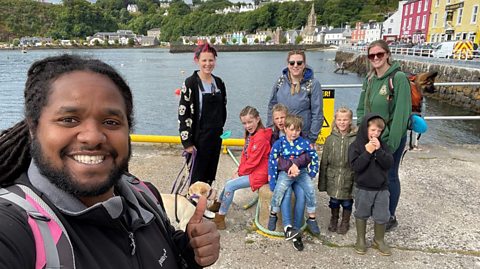
Adventure is at Hamzaãs doorstep where he lives on Scotlandãs west coast. But for the best fun, he says the secret can be to use a childãs imagination rather than relying on a specific place to explore.
ãGive children that little bit of an opportunity to use their imagination and then roll with it.ã
Hamza told us that because of his severe dyslexia, he often relies on imagery to communicate and added that this form of imagination comes easy for children too.
ãIf they say something that is not 100% correct, roll with it and see what comes out of the conversation,ã says Hamza.
ãIf a child says something like ãI think a dragon comes out of that house because itãs using the chimney like a strawãÎã, just follow along and try and keep up with them.
ãJoin in with the adventure, make it fun and let your adultness go out of the window. Playing games with children like ãdonãt step on the cracksã if youãre walking down the local high street or ãthe floor is lavaã while out in the playground are some brilliant ones!
ãIãm a big child deep down inside and my godchildren, nephews and nieces absolutely love it and canãt wait to come round my place because they have a world of a time.ã

Encourage them to use their senses
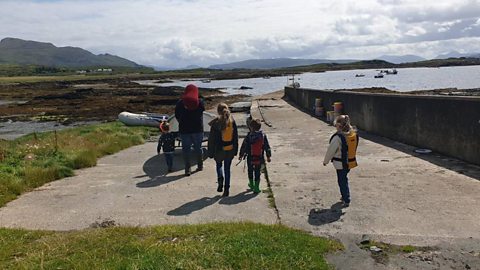
Hamza encourages children to make the most of their senses to pay attention to the world around them. ãI do this by asking them questions that spark their interestã, he suggests. For example:
Smell: Can they pick up some flowers - what do they smell like?
Taste: What does the ice cream theyãre enjoying taste like?
Hear: Can they hear birds singing? Can they make bird sounds too?
See: How many chimneys can they spot in the middle of town?
Touch: How rough/smooth does the bark on a tree feel like? And why does it feel that way?
ãObviously as adults we have to be careful and ensure the items they are touching and picking up are the right things, AKA not poo! But by touching these objects, the little ones are learning and figuring things out, as well as having fun!
ãEncouraging a sense of competition and making it into a fun game also works well for sensory play. For instance, asking kids who can spot a bird first or who can spot the largest number of motorbikes or yellow cars in the middle of a town. Here children are learning about colours and counting and also about road safety as they look out for vehicles on the road.

Drawing or writing about their day
If your child is old enough, ask them to write a diary or to draw pictures to remember their adventure. Hamza says ãI ask the youngest of my nieces, nephews and godchildren, who canãt read or write, to draw pictures to describe what they did on their adventures and they love it. The older children write down some sentences describing what they have done too, so when they go back to nursery, pre-school or school, this drawing or reflective diary can give them something to talk about and show their teacher.ã
Reflecting on past events like this is a great way to boost your little oneãs vocabulary.
Looking for inspiration for outdoor fun with your little one? Here are some adventure ideas from Hamza:
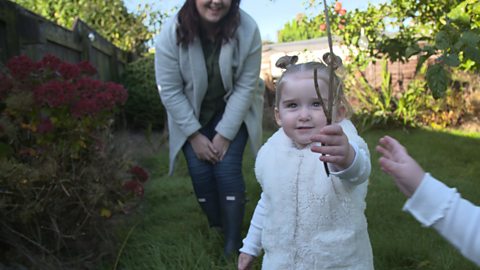
In the park
- Have a treasure hunt in the park.
- Take a kite and fly it on a windy day. Perhaps you could even try and make one together?
In the town centre
- How many chimneys, cars and motorbikes can they see and what colour are they?
- Play imaginative games like ãFloor is lavaã and ãDonãt step on the crackã.
- Look for the house numbers and see if you can spot the unlucky number 13!
On a beach
- Bring a bucket and spade for sandcastles and have a competition ã who can build the biggest sandcastle?
- Go rockpooling ã as the tide goes out, pick up a bucket and scoop up some sea water from rockpools. Ask your child what creatures they can spot inside. This is a great opportunity to teach them new words like anemone ã just donãt expect them to get it right first time!
In the garden
- Make a wildlife pond.
- Make a birdfeeder out of a coconut shell.
- Try some cloudspotting. What animals and shapes can they see?
In the countryside
- Ask them to see what animals or tractors they can spot.
- Spark their interest in farmerãs fields: Whatãs growing in the field? Are they growing plants or keeping animals? Are there cows in the field, and if so what colour are the cows?


